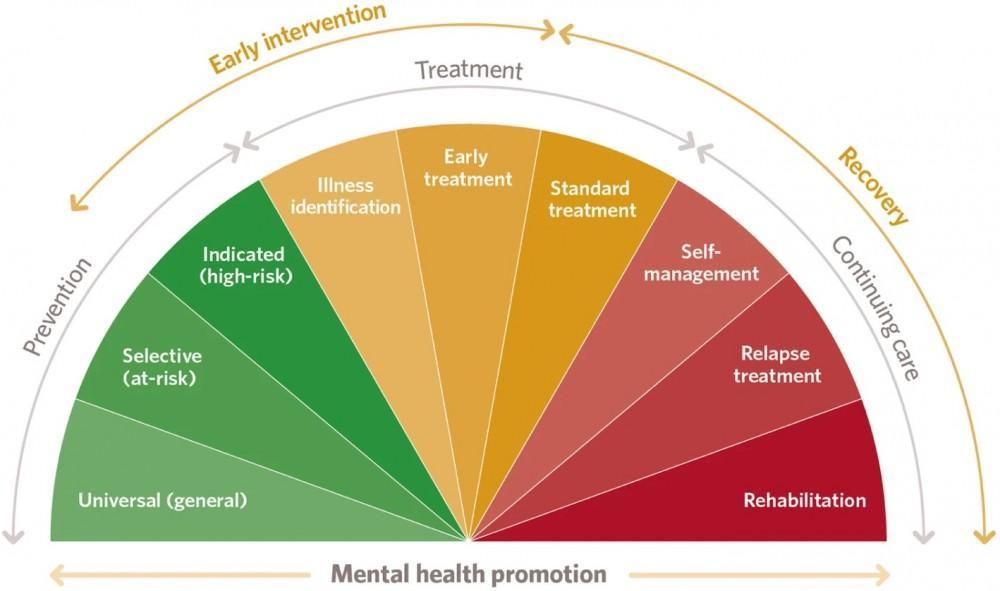
The Spectrum of Mental and Emotional Health

Image from Sports Medicine.
The science of mental health is evolving. In the past, we’d say someone has schizophrenia or doesn’t; they have autism or they don’t.
In recent years, though, we’re talking more and more about spectra.
The spectrum of light.
You may be aware that instead of diagnosing different types of autism, doctors are now simply indicating that patients are on the autism spectrum. We’re viewing other disorders that way too — take, for example, my recent blog about creativity and personality disorders like bipolar and schizophrenia. Creative people tend to have a higher genetic risk for these disorders than non-creative people, suggesting there may be a continuum with healthy creativity at one end and mental illness at the other. People in between might be considered mentally ill, or they might not.
There was a 2015 study that delved into the spectrum of emotional regulation. Scientists asked a group of healthy people to rate how much trouble they have with emotional regulation on a daily basis. Then they took MRIs of the subjects. They found that the greater the problems the subjects had with emotional regulation, the smaller the size of the orbitofrontal cortex in their brains. This same area is known to be smaller in people with borderline personality disorder and antisocial personality disorder.
The study offers evidence that emotional regulation is another one of those spectra that keep showing up in mental health. Here’s what study author Predrag Petrovic has to say:
“The results support the idea that there is a continuum in our ability to regulate emotions, and if you are at the extreme end of the spectrum, you are likely to have problems with functioning in society and this leads to a psychiatric diagnosis. According to this idea, such disorders should not be seen as categorical, that you either have the condition or not. It should rather be seen as an extreme variant in the normal variability of the population.”
This fluidity of diagnosis is one reason that psychotherapy can be very useful — it helps patients, categorized or not, learn emotional self regulation skills. Sometimes, though, therapy is not enough and meds can be used as an adjunct, often very successfully.
Contact me if you're battling mental illness, and we can help you figure out the combination of treatment that works for you.
You Might Also Enjoy...


Almost Three Quarters of Adolescents Experience Depression or Anxiety

Antidepressants Can Reduce Depression By Acting on the Gut Alone

How to Practice Gratitude this Holiday Season

Schizophrenia Treatment: iTBS over left DLPFC brings new hope to patients


